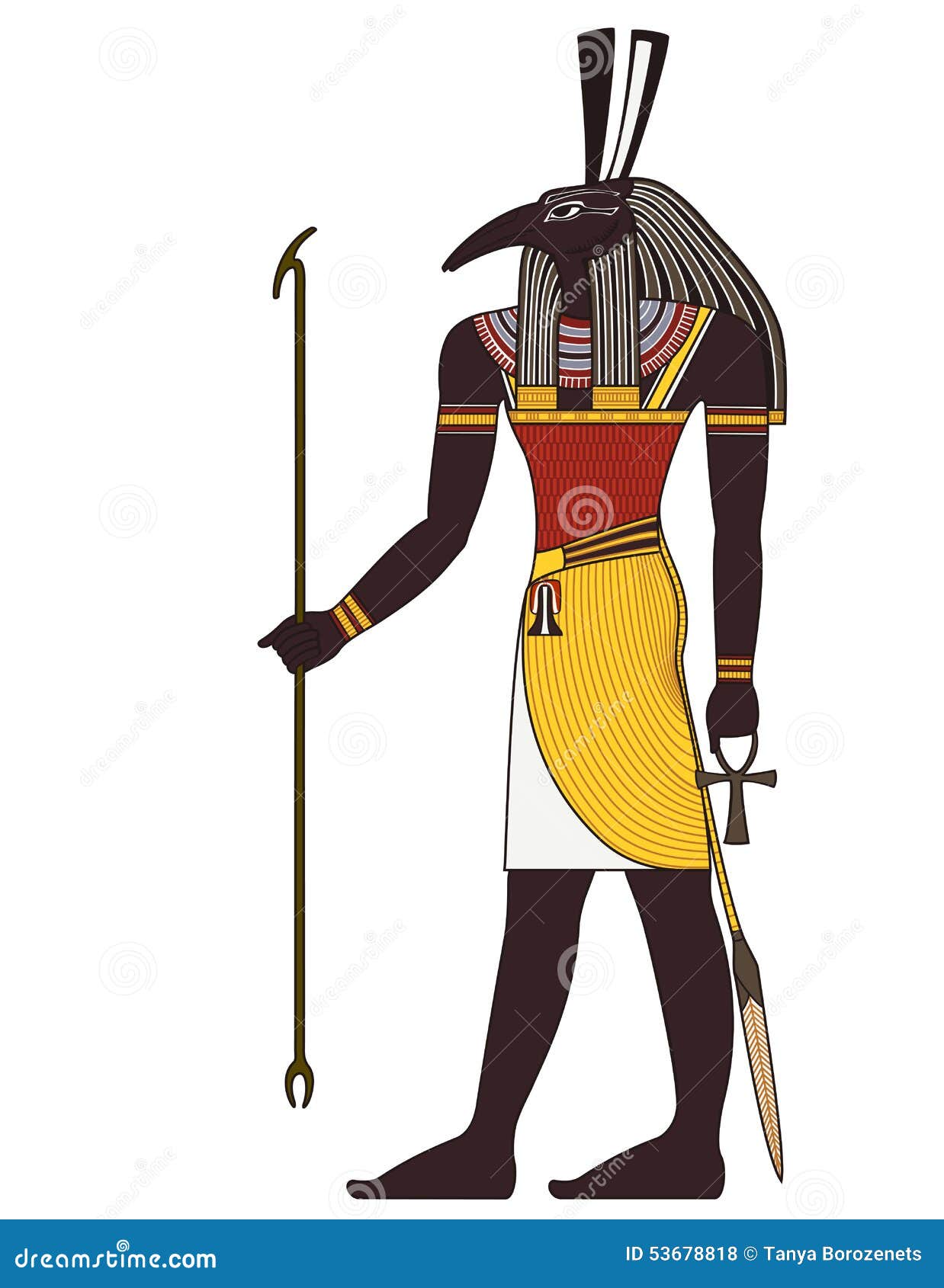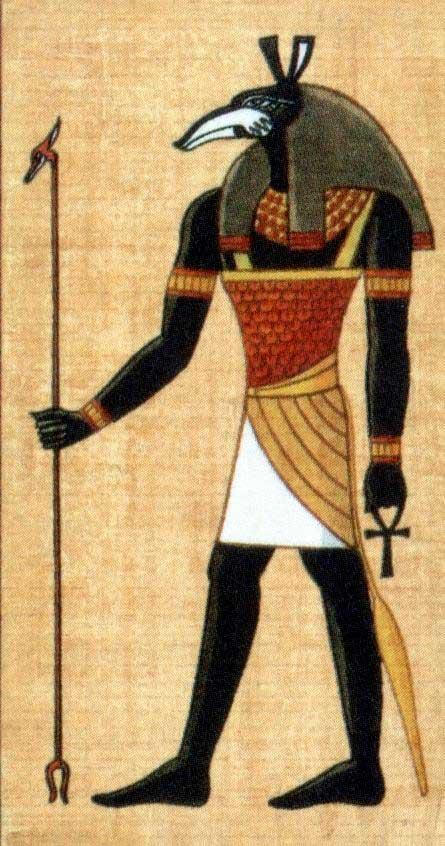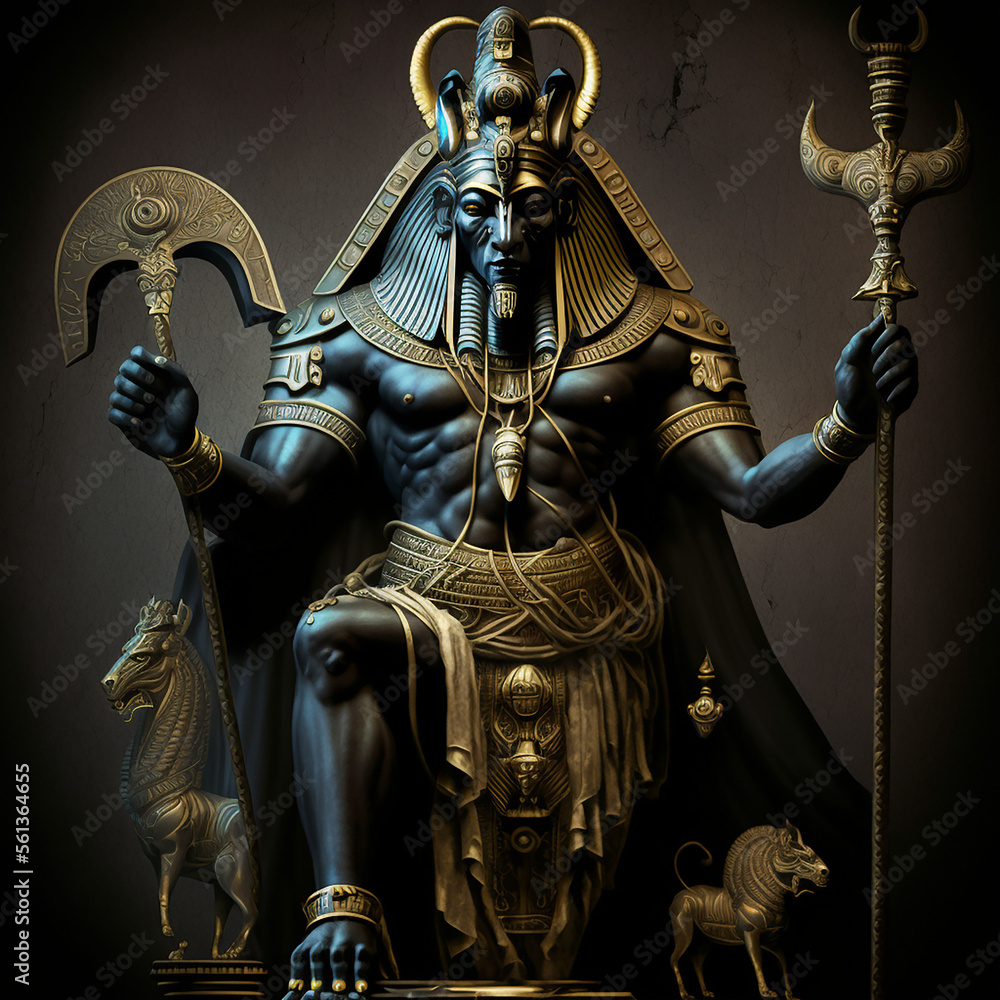Seth Wright - Exploring Ancient Figures Named Seth
Sometimes, a name just pops into your head, and you start to wonder about the person it belongs to, perhaps someone like a "Seth Wright." It is that kind of name, really, that sounds familiar and yet holds a hint of something more, something perhaps historical or even legendary. But what if the name "Seth" itself, before any "Wright" comes into play, carries a much older, deeper resonance, echoing through different times and very distinct cultural stories?
You see, the name "Seth" has appeared in some truly old accounts, far predating any modern usage. It's almost as if the sound of it, just "Seth," has been around for ages, attached to figures who played rather significant parts in very early belief systems. We are going to explore some of these foundational stories, the ones where the name "Seth" shows up with a lot of meaning, perhaps making us think a little differently about names in general, you know?
So, while you might initially picture a contemporary person when you hear "Seth Wright," the truth is that "Seth" on its own introduces us to two incredibly distinct and powerful figures from antiquity. There is Seth from the Abrahamic faiths, a person whose very existence marked a new chapter for humanity, and then there is Seth, the Egyptian deity, a god whose actions shaped the cosmos in ways that are, in some respects, quite astonishing. We will look at both, just to get a feel for how one name can carry such varied and heavy importance.
Table of Contents
- Who is Seth, Really?
- The Biblical Figure Named Seth
- What Does Seth's Name Mean for Us?
- Seth in Ancient Egypt - A Different Story?
- The Egyptian Deity, Seth
- How Did Seth's Role Change in Egyptian Beliefs?
- Understanding Seth's Duality and Impact
Who is Seth, Really?
When you hear the name "Seth," it might call to mind a variety of images, depending on what stories you have heard or what names you have come across. For some, it brings to mind a person from very old religious texts, a figure whose presence marked a fresh start after a terrible event. For others, it is that of a powerful being from ancient myths, a god with a very particular set of responsibilities in the creation and upkeep of the world. It is quite interesting, really, how one name can be tied to such different, yet equally significant, narratives. So, is that "Seth Wright" you are thinking of connected to these older tales? Probably not directly, but the shared name allows us to explore the history behind it.
The fact is, Seth is not just one individual, but a name that points to distinct, powerful roles in different cultural histories. There is the Seth found in the Hebrew Bible, a pivotal individual in the early lineage of humanity. Then there is the Seth from ancient Egyptian lore, a deity who held a very central, if sometimes troubling, position in their pantheon of gods. Both figures, in their own ways, illustrate how names can become vessels for profound ideas about beginnings, order, disruption, and renewal. It is almost as if the name itself carries a certain weight, a kind of historical echo that reverberates across time, wouldn't you say?
To truly get a sense of who Seth is, or rather, who these figures named Seth are, we need to look at their individual stories. Each narrative paints a picture of a being or person who, for their respective cultures, was pretty important. Whether as a link in a chain of generations meant to carry on a particular way of life, or as a force embodying the very nature of chaos and transformation, Seth's name, you know, carries a lot of meaning. We will explore these two distinct portrayals, seeing how a single name can hold such varied significance, which is actually quite fascinating.
- %EA%B3%A8%EB%95%8C%EB%A6%AC%EB%8A%94 %EC%BB%A4%ED%94%8C
- Asian Webcam Amateur
- Meltons App Tap
- Jason Mikell Family
- Indiana Mylife
The Biblical Figure Named Seth
In the oldest stories of the Abrahamic faiths, Seth enters the narrative at a particularly somber moment. He is introduced as the third son of Adam and Eve, coming into the world after a truly heartbreaking event: the slaying of his brother Abel by Cain. This timing, you see, is not just a random detail; it shapes his entire importance within the early accounts of humanity. His arrival is presented as a kind of divine provision, a way for a particular lineage, one that would honor a certain path, to continue after a great loss. It is a moment of hope, in a way, after despair, a fresh start for the family of humankind, as a matter of fact.
The Hebrew Bible mentions Cain and Abel as his direct siblings, but it also makes a point of saying that Adam and Eve had other children, too. Seth, however, is singled out, given a specific mention that sets him apart. His birth is recorded in Genesis 4:8, right after the tragic incident with Cain and Abel. This positioning in the scripture is pretty important, as it suggests a deliberate act of continuity, a way to ensure that the story of humanity, particularly a certain kind of spiritual thread, would not simply end with the first terrible act of violence. He is, therefore, a figure of continuation, a sort of bridge, you know, from one difficult period to another, more hopeful one.
Seth's role, basically, centers on the idea of God providing a righteous or godly line after Abel's death. It is almost as if his very existence was meant to fill a void, to bring a sense of purpose back to the earliest human family. This is why his name itself holds such weight. It is not just a name; it is a statement about divine intention and a future direction. We will look a little closer at what that name actually means, as it truly helps us understand his place in these foundational stories, which is quite central, honestly.
What Does Seth's Name Mean for Us?
The meaning behind a name can often tell us a lot about a person's intended role or their significance within a story. For Seth, the son of Adam and Eve, his name carries a very particular sense of purpose. It means "appointed" or "granted." This meaning is not just a casual label; it speaks directly to the circumstances of his birth and his function in the larger biblical narrative. He was not just another child; he was, in a way, a designated successor, someone given to ensure a particular future, you know, for the human family. This idea of being "appointed" suggests a higher design, a deliberate choice in the face of earlier misfortune.
Consider the timing of his arrival: after the loss of Abel, a figure described as righteous. Seth's presence, therefore, becomes a sign that a good or godly path would not be extinguished. He was "granted" as a replacement, not just for a lost son, but for a lost way of living, a lost connection. This makes his position in the genealogies, the long lists of who begot whom, particularly strategic. He is not just a name on a list; he is a vital link, a pivot point that ensures the continuation of a specific lineage, one that would eventually lead to figures of great importance in the biblical tradition. It is quite a heavy responsibility for a name to carry, honestly.
So, what does Seth's name mean for us, when we consider these ancient texts? It reminds us that even in moments of great sorrow or disruption, there can be new beginnings, a sense of being given another chance. His name signifies hope and continuity, a fresh start when it seemed like things might have gone completely off track. It is a powerful idea, that something can be "appointed" or "granted" to bring about a better future, and Seth's story, you know, really embodies that. This idea of a fresh start is a very human one, one that perhaps even someone named Seth Wright might appreciate in their own life's journey.
Seth in Ancient Egypt - A Different Story?
Now, if you were to shift your gaze from the ancient lands of the Abrahamic faiths to the sun-drenched sands of ancient Egypt, you would find another prominent figure bearing the name Seth. But this Seth is a vastly different character, a powerful deity whose story is steeped in myth, magic, and cosmic struggle. Is that Seth Wright we might be thinking of somehow connected to this ancient Egyptian god? Not at all, but the striking contrast between the two figures named Seth really highlights how a single name can hold such diverse and sometimes contradictory meanings across different cultures and belief systems. It is quite a fascinating point, actually.
This Egyptian Seth, often also called Set or Suetekh, was not a human figure but a god, a force of nature personified. He was the patron of the 11th nome, or province, of Upper Egypt, which shows his localized importance, but his influence stretched far beyond any single region. His presence in the Egyptian pantheon was absolutely central, though his actions were often disruptive, even violent. This particular Seth, you know, represents a side of existence that the Egyptians understood as necessary, even if it was often unsettling. It is a very different kind of role than that of the biblical Seth, to be sure.
The Egyptian belief system, as a matter of fact, was deeply rooted in the concept of duality, a balance between opposing forces. And in this grand cosmic arrangement, Seth played a truly pivotal role. He was seen as the opposite of other major gods, particularly his brother Osiris, and this opposition was not always about simple good versus evil, but about a dynamic interplay that kept the universe going. So, while the biblical Seth brought continuity, the Egyptian Seth brought, well, something else entirely. We will look closer at his specific attributes and how they fit into the Egyptian worldview, which is pretty complex, you know.
The Egyptian Deity, Seth
The Egyptian deity known as Seth, or Set, was a god of many things, often those that seemed wild, untamed, or even dangerous to human order. He was connected with chaos, darkness, the vast, empty desert, and the harshness of drought. He was also a god of war and storms, embodying the fierce, unpredictable aspects of the natural world. This collection of attributes paints a picture of a powerful, untamed force, one that could bring destruction but was also, in a way, essential to the cycle of existence. It is quite a broad range of responsibilities for one deity, you know.
His family connections are also very important to understanding his story. Seth was the brother of Osiris, Isis, and Horus the Elder. He was also the uncle to Horus the Younger. This makes him part of a core group of Egyptian gods, and his interactions with them, especially Osiris and Horus the Younger, form some of the most enduring and central myths of ancient Egypt. His role in these family dramas, particularly the myth of Osiris's murder, cemented his reputation as a disruptive, sometimes malevolent, figure. But even in his disruptive actions, there was a larger purpose, or so the Egyptians believed, which is quite interesting, really.
Seth's role in Egyptian mythology was truly complex, and he is often considered one of the most intriguing gods in their entire pantheon. He was not simply a villain; his character had many layers. For those who explore the ancient Egyptian deities, Seth's story often captures their attention because it forces them to think about the nature of good and bad, order and disorder, in ways that are not always straightforward. He stands out, you know, as a figure who is often misunderstood, perhaps because his actions seem so extreme, yet they were seen as necessary for a grander balance, as a matter of fact.
How Did Seth's Role Change in Egyptian Beliefs?
One of the most fascinating aspects of Seth, the Egyptian god, is how his perception and role changed over time within the belief system. He underwent a rather dramatic transformation, moving from a deity who was sometimes seen as benevolent or even protective, especially in certain regions or during particular periods, to becoming the very embodiment of evil and disorder. This shift was not just a random change; it was deeply tied to the Egyptian understanding of dualistic balance, a fundamental principle of their cosmos. It is almost as if the needs of their spiritual framework required him to take on a more defined, darker role, you know.
Initially, Seth was associated with strength, the desert, and foreign lands, and could even be a protector of the sun god Ra, fighting off the serpent Apep. But as the myths around Osiris and Horus gained more prominence, and as the political landscape of Egypt shifted, Seth's character began to be reinterpreted. His opposition to Osiris, who represented order, fertility, and kingship, became more pronounced and negative. This transformation was, in a way, necessary to maintain the clear distinction between opposing forces that was so important to Egyptian thought. For every force of order, there had to be a counter-force of disorder, and Seth became that counter-force, quite powerfully, actually.
This evolving depiction of Seth helped the Egyptians to make sense of the world around them, with its cycles of creation and destruction, life and death. By having a god who personified chaos and violence, they could explain the unpredictable nature of the desert, the turmoil of war, and the disruption of natural order. His transformation into a more consistently malevolent figure served to highlight the importance of order and the triumph of good, even if that triumph was constantly challenged. So, Seth's changing role was less about him as a person and more about his function within a very specific philosophical and religious framework, which is pretty deep, honestly.
Understanding Seth's Duality and Impact
The concept of duality was absolutely central to ancient Egyptian thought, and Seth stands as a primary example of this principle in action. They believed that the universe was kept in balance by the interplay of opposites: day and night, life and death, order and chaos. Seth, as the god of chaos and disorder, was the necessary counterpoint to deities like Osiris and Horus, who represented kingship, fertility, and cosmic order. Without Seth's disruptive presence, the balance would, in a way, be incomplete. It is almost as if his very nature, while often destructive, was essential for the continuous renewal and vitality of the world, you know.
His complex and often misunderstood nature means he was not simply a "bad guy" in the way we might think of villains today. Rather, he was a force that, through his very opposition, allowed for the definition and strengthening of order. His conflicts with other gods, particularly the long struggle with Horus for kingship, were not just tales of violence; they were narratives that explained the succession of power, the challenges faced by rulers, and the ultimate triumph of justice, or what they perceived as justice. This dynamic tension, you see, was what kept the cosmos from becoming stagnant, ensuring that life continued to unfold in its various cycles, which is quite a profound idea.
Seth's impact, therefore, was far-reaching, affecting not just the mythological stories but also the daily lives and beliefs of the ancient Egyptians. He represented the wild, untamed aspects of their environment—the scorching desert, the unpredictable storms—forces that were both feared and respected. By giving these forces a divine form in Seth, they could better understand and perhaps even cope with the challenges they presented. His story, in short, is a powerful illustration of how ancient cultures used their gods to explain the world, its challenges, and its inherent balance, which is pretty amazing,

Seth , Isolated Figure Of Ancient Egypt God Stock Vector - Image: 53678818

Amun-Ra Egyptology Blog: Seth, God of Conflict

Ancient Egyptian mythology. Seth, the ancient Egyptian mythological god